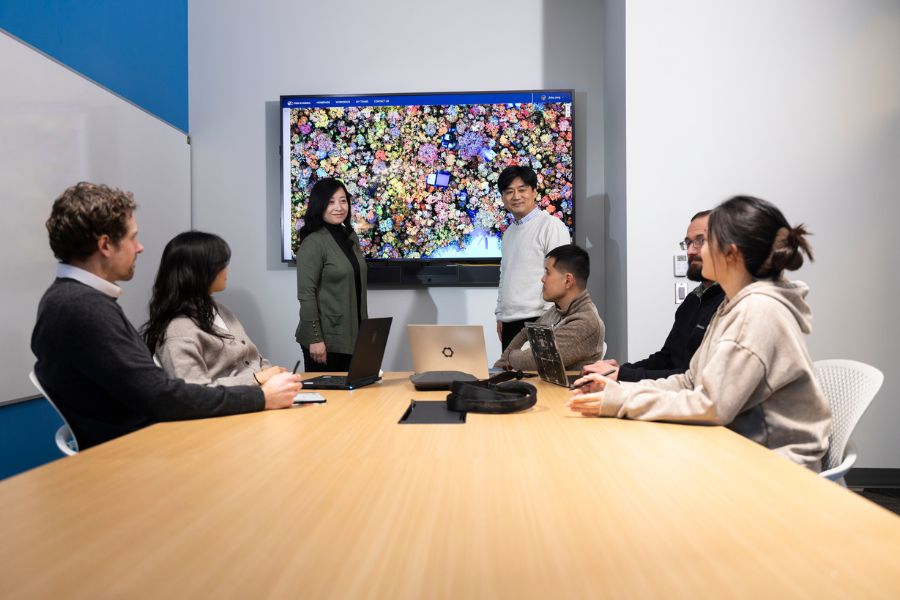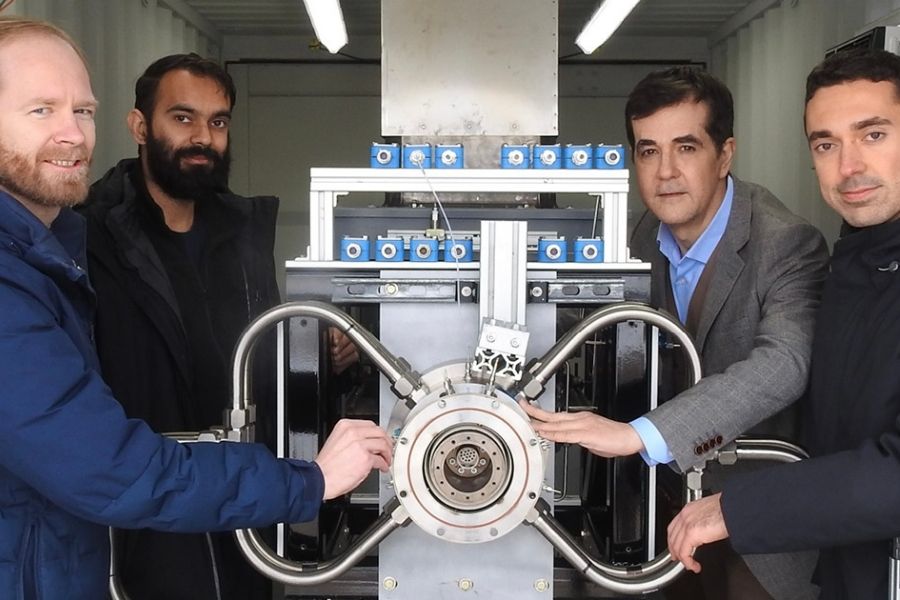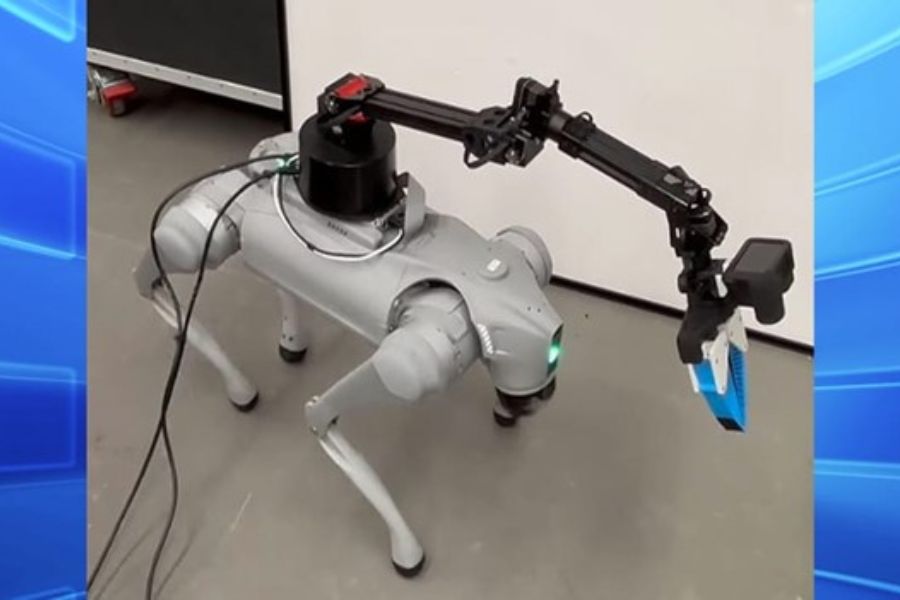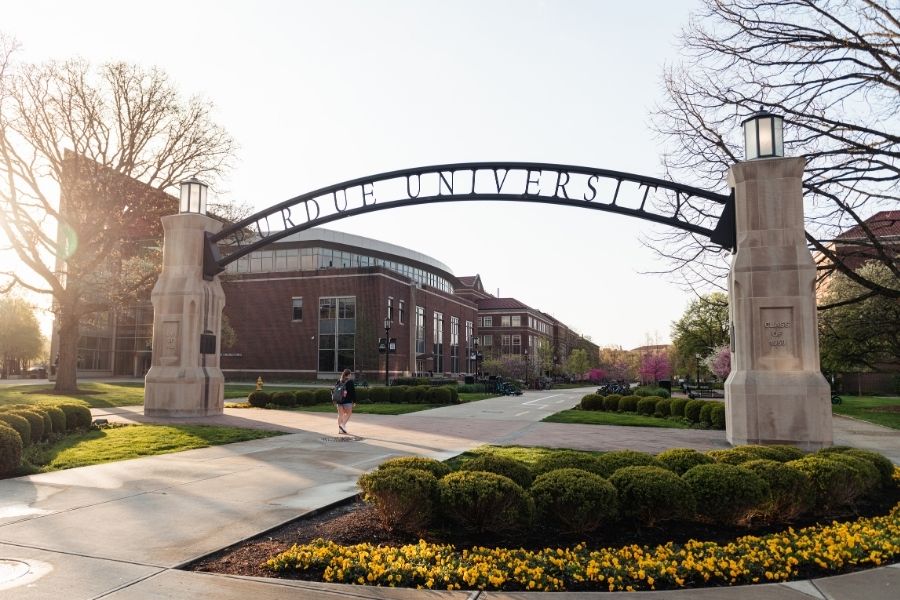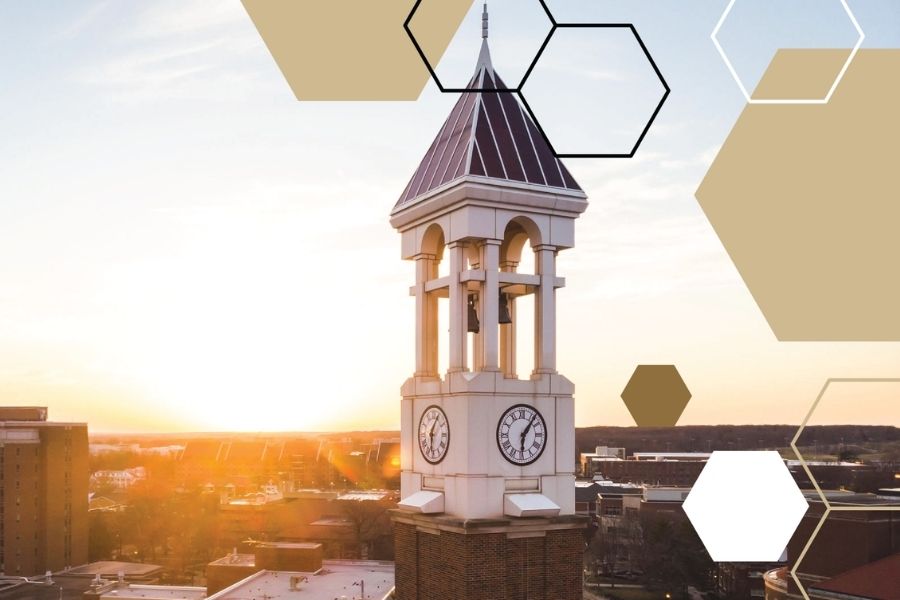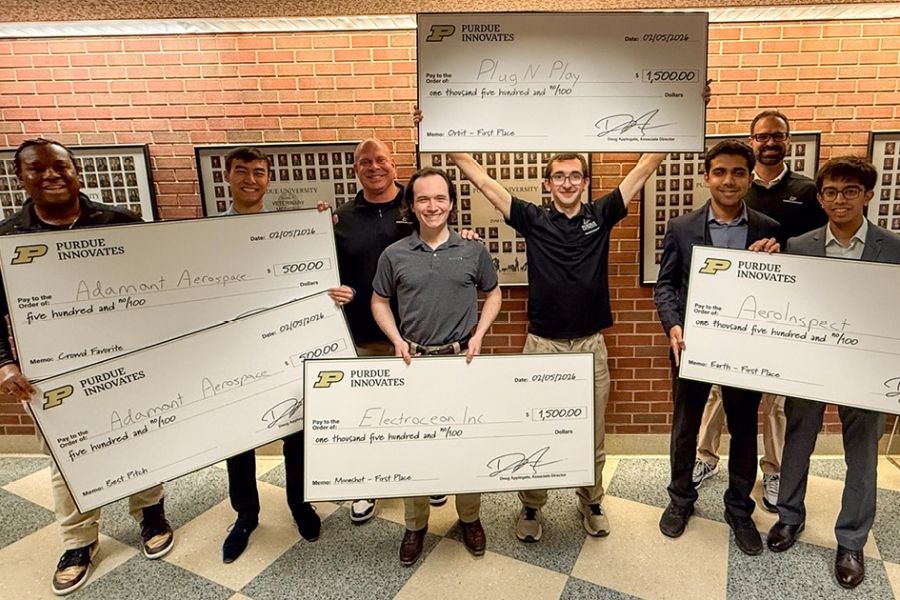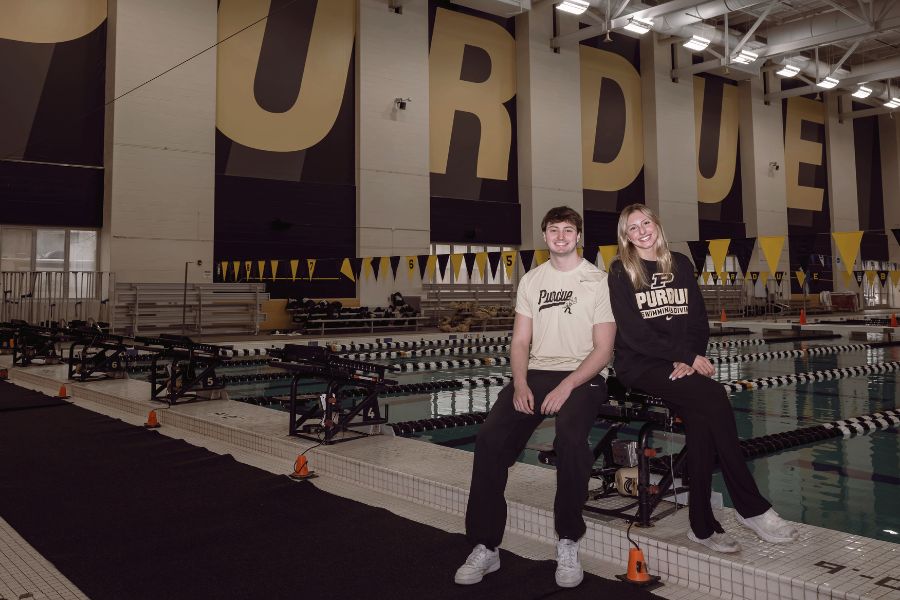ECE's Chiang, 3 alumni elected to National Academy of Engineering
$100M
Semiconductor Facilities Expansion
ASTRONAUTS
30
Cradle of Astronauts
INDUSTRIAL ROUNDTABLE
LARGEST
Student-Run Job Fair
Social
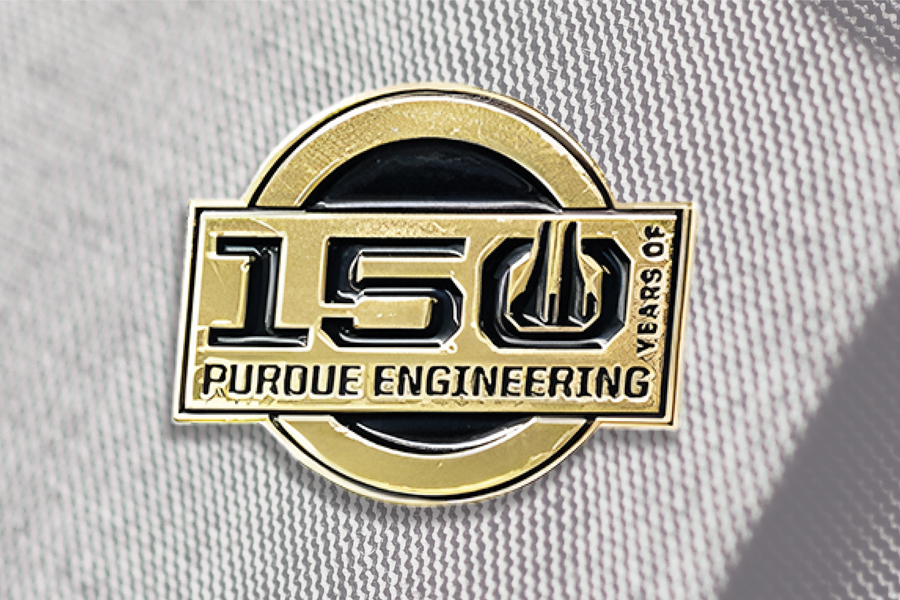
Show off your Purdue Engineering pride with this beautiful commemorative lapel pin! Receive your pin with a gift of $50 or more to the College of Engineering 150th Fund, which will help us empower Boilermakers to influence the field of engineering on a global stage for another 150 years.
This offer is only available while supplies last. Please allow 8-10 weeks for delivery. One lapel pin per household. International shipping is not available.
Give NowFEB
24

